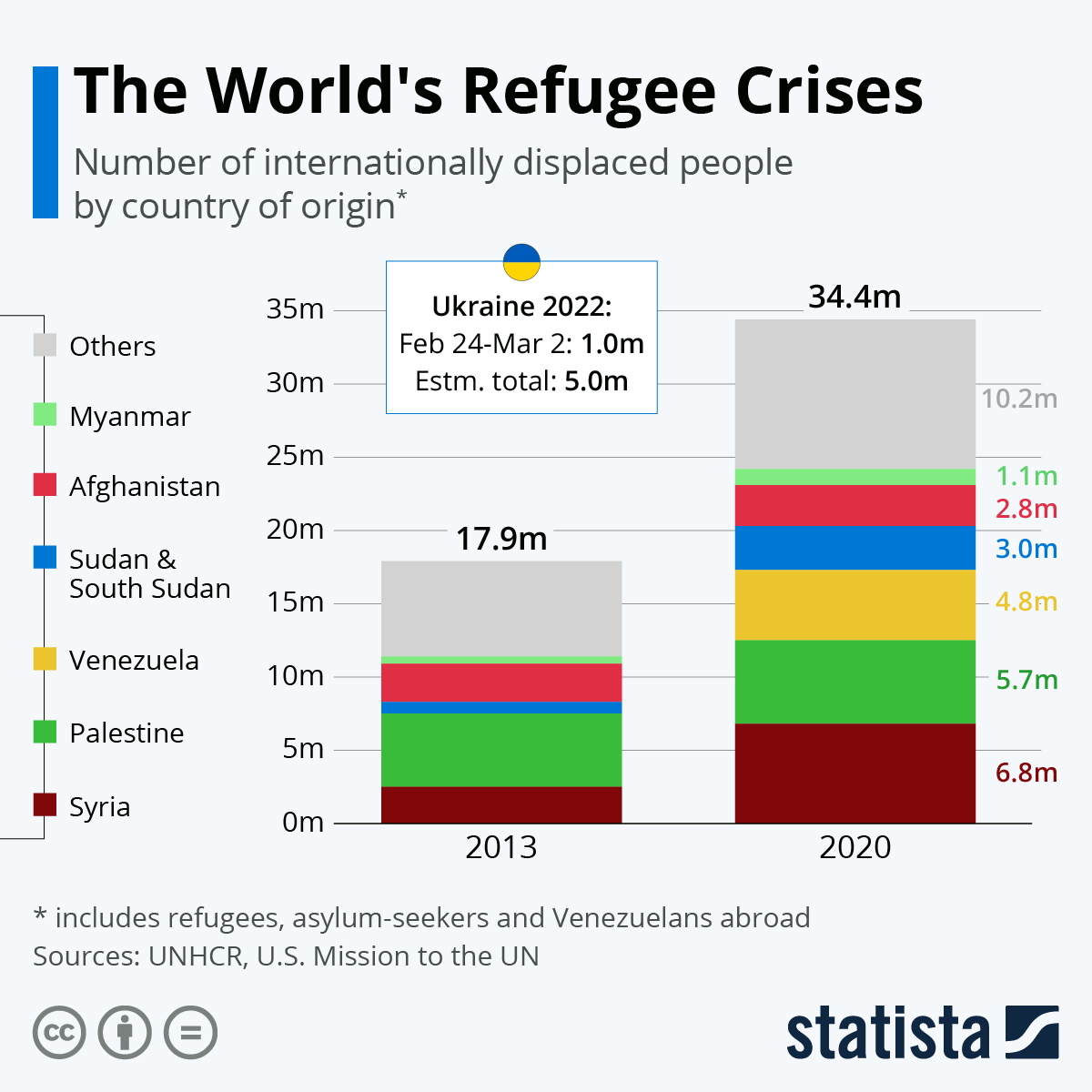The war in Ukraine has set off Europe’s fastest migration in decades, The New York Times reports. In the five days after Russia’s invasion of the country on Feb 24, almost 700,000 people left Ukraine, according to UN refugee agency UNHCR. As of March 2, that number had grown to more than 1 million. U.S. ambassador to the United Nations, Linda Thomas-Greenfield had told the body’s General Assembly last week that the number of Ukrainian refugees could top five million in the case of a full-fledged invasion that the world is witnessing now.
Comparing that estimate to annual data from the UNHCR, which monitors the number of displaced people worldwide, the Ukraine refugee crisis has the potential to become one of the largest in the world.
In 2020, the UNHCR counted 6.8 million internationally displaced refugees and asylum-seekers from Syria, meaning people who had not yet gained full legal status in another country. The second largest crisis identified by the U.N. was that of displaced Palestinians followed by those who left their home country due to the crisis in Venezuela – both counting around 5 million people in dire situations. Refugees and asylum-seekers from Sudan and South Sudan numbered 3 million while those from Afghanistan abroad were 2.8 million strong in 2020, the latest year for which data was available.
As numbers from 2013 show, refugee crises normally don’t happen all at once. A decade ago, those displaced from Syria had numbered 2.5 million, while those fleeing Sudan and South Sudan were 800,000 strong. The Palestinian and Afghanistan situations are examples of long-standing conflicts where refugee numbers have stagnated over the past 10 years or so. On the other hand, the Venezuelan state failure shows that some refugee flows can grow quite quickly. Back in 2013, UNHCR had only counted around 200,000 Venezuelans in refugee-like situations.
Together with 48 million internally displaced people, the UNHCR counted a total of 82.4 million forcibly displaced people in the world in 2020 – a record high and double the number of 2010. In contrast the number of resettlements reached a record low that year amid the Covid-19 pandemic. Short of 35,000 refugees and asylum-seekers found a permanent new home compared with more than 100,000 in 2019.





















